QLF’s Senior Vice President Brent Mitchell recently returned from Brazil, where he gave the closing keynote to the national congress of RPPN (Private Natural Heritage Reserves). Brent also traveled to the Pantanal and was hosted at Brazil’s largest privately protected area.
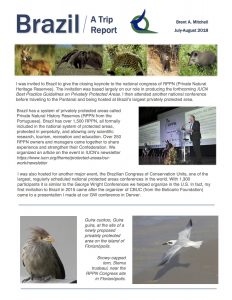
Click here or on the report below to read more details about his trip, see photos of area wildlife, and get a briefing on the latest developments of the upcoming IUCN Best Practice Guidelines on Privately Protected Areas.
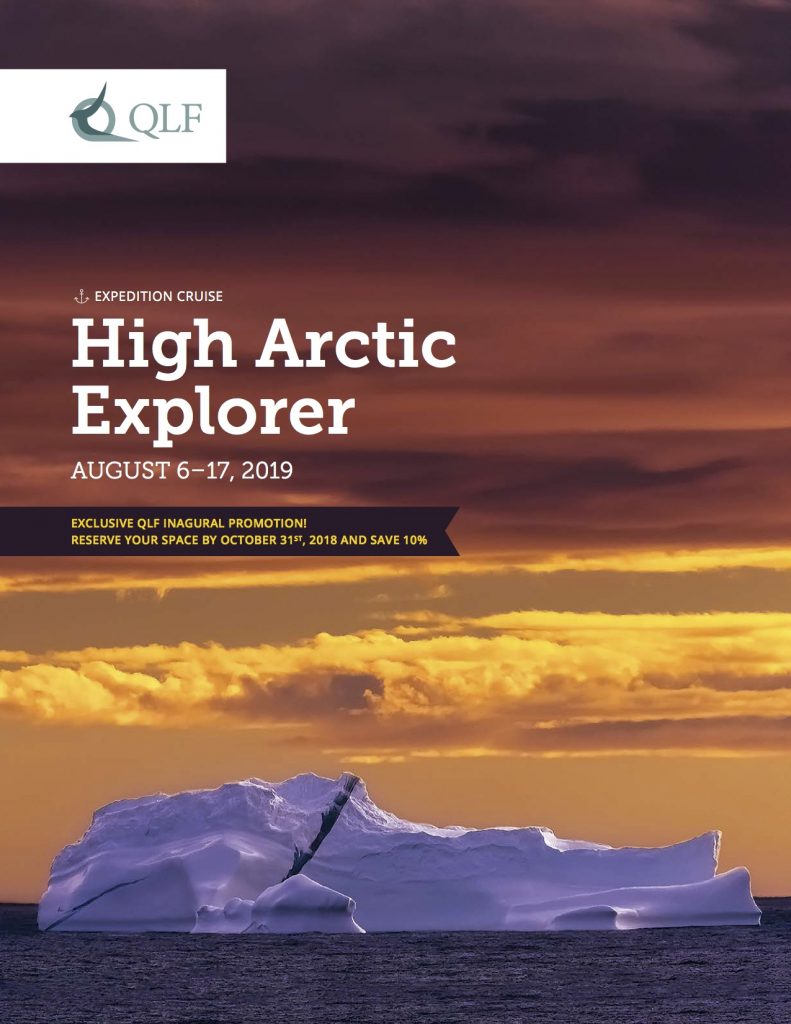
QLF is excited to share a once-in-a-lifetime opportunity to explore the Canadian High Arctic in 2019 in partnership with Adventure Canada, the country’s preeminent adventure travel company.
Find all the details, itinerary and pricing here in this brochure. Please note there is a 10% savings for those who reserve by 31 October 2018.
Hope to see you aboard Adventure Canada’s Ocean Endeavour!
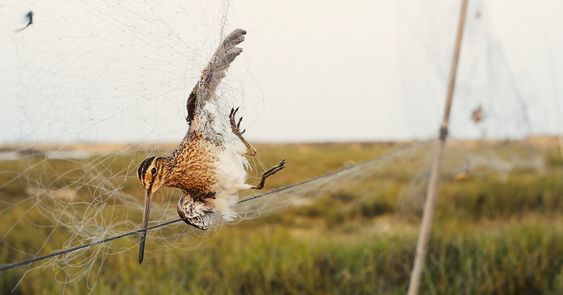
Courtesy: The New York Times
“A worldwide catastrophe is underway among an extraordinary group of birds — the marathon migrants we know as shorebirds. Numbers of some species are falling so quickly that many biologists fear an imminent planet-wide wave of extinctions.”
This article from The New York Times is an incredibly informative read on the crisis facing shorebirds, and highlights many of the reasons for QLF’s conservation work in Eastern Canada, and the development of a new program to promote transboundary conservation along the world’s great flyways. As John W. Fitzpatrick and Nathan R. Senner write, “The global collapse of migratory shorebird populations is much more than a calamity facing a group of exquisitely evolved birds. It also tells us that our global network of aquatic systems is fraying.”
You can learn more about shorebird conservation in this Fall 2017 article by Dr. Kathleen Blanchard, Senior Consultant in Biodiversity Conservation at QLF. Kath will gather a new group of interns in eastern Canada this summer to further this essential conservation work and develop the next generation of environmental leaders.
And stay tuned for a Spring 2019 program where QLF will gather conservationists from all the world’s great flyways to facilitate an exchange of conservation innovation and effective techniques on the stewardship of migratory birds.
During QLF’s 2016 Congress in Barcelona, QLF director and COO / CFO of Manomet Constance de Brun sat down with Amir Balaban, QLF alum and cofounder of the Jerusalem Bird Observatory (JBO), and an idea for a partnership began to form. Less than a year later, the two organizations began an exchange to explore the future and impact of bird observatories across borders, specifically how they can be catalysts for conservation by being centers for experiential science education.
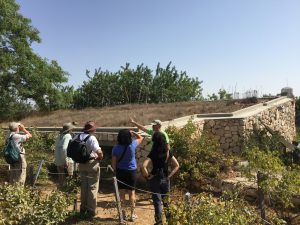
Photo Credit: Constance de Brun
The first phase of the exchange was hosted by JBO in Israel last September. This Story Map beautifully demonstrates the important ideas and work that came out of this exchange, including a front row seat to bird banding and the nearby Rift Valley Flyway that hosts hundreds of millions of migrating birds each fall and spring. In October, Manomet hosted JBO’s experts in New England to complete the exchange. They stopped by a Sandwich, MA middle school, which is participating in Manomet’s Climate Lab project. Both organizations are dedicated to strengthening their education programs, and this partnership is an important next step in doing so.
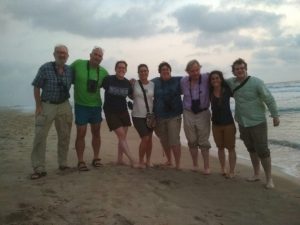
Photo Credit: Constance de Brun
150 participants at the 2nd International Bird Observatory Conference listened as Manomet and JBO presented as partners on the progress made as a result of their Exchange, and how collaborating had expanded the reach of their programs. As this blog post from Manomet recapping the Conference elegantly states, “Birds know no borders, and at the IBOC there were no barriers between bird observatories, either.”
We are thrilled at the conservation progress made by these two amazing organizations, and highly recommend taking a further look at the resources we linked to above. We can’t wait to see what comes next from this partnership!











